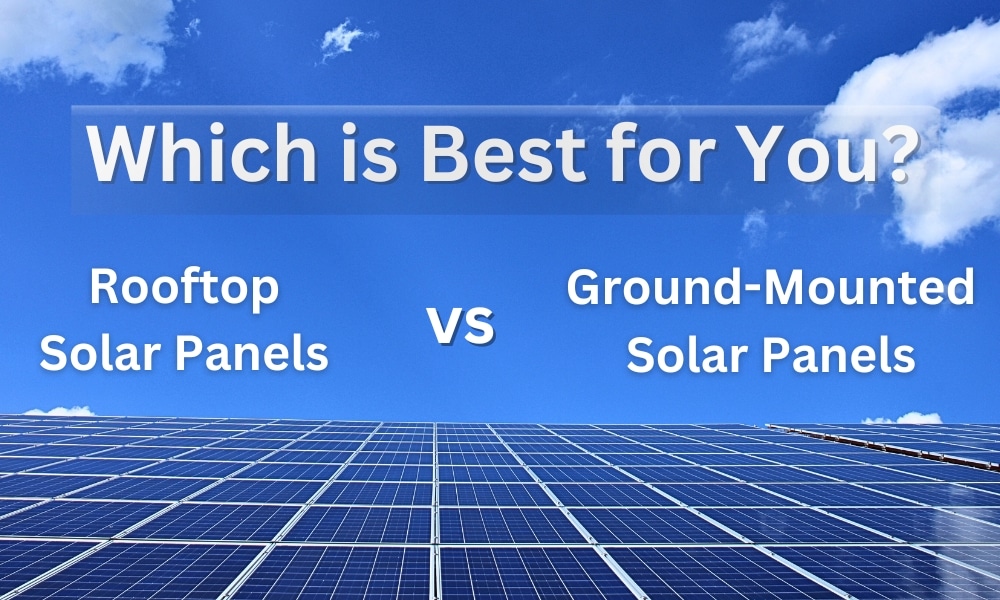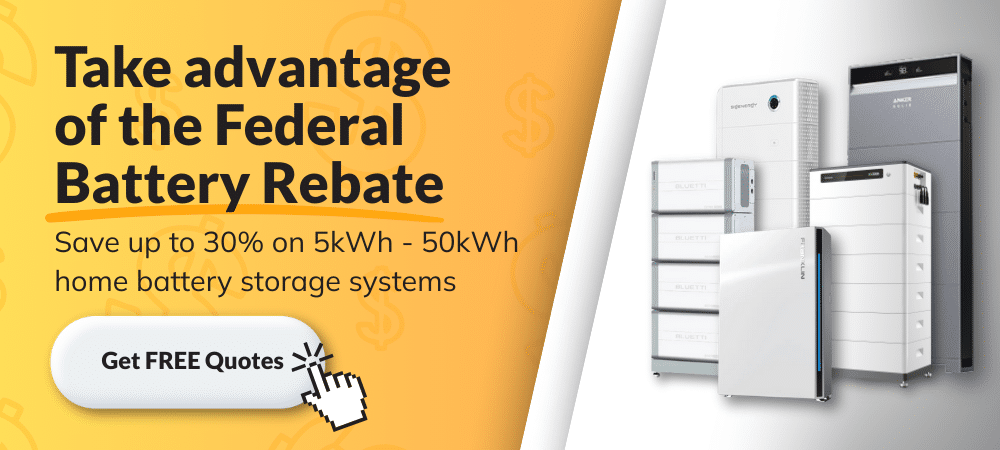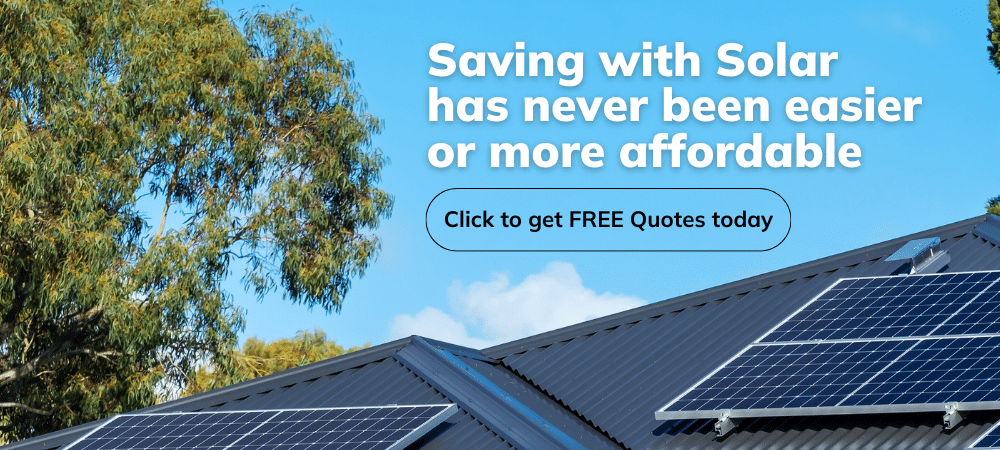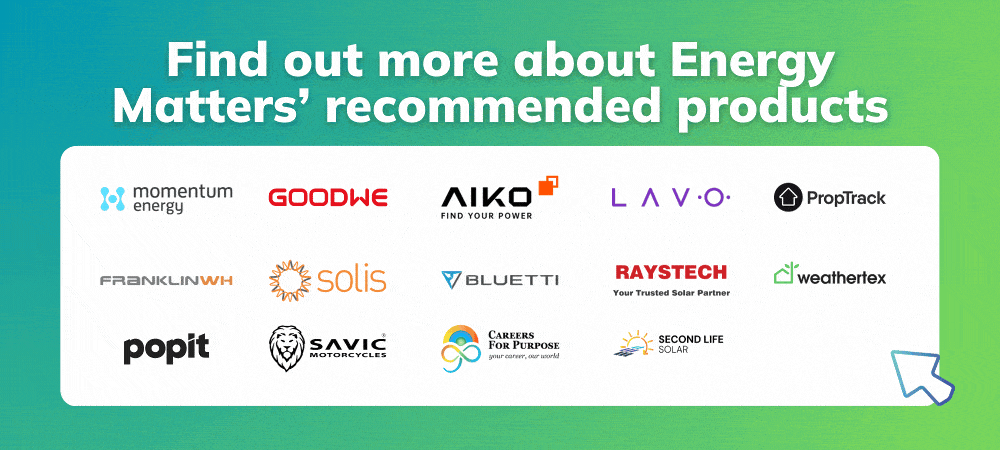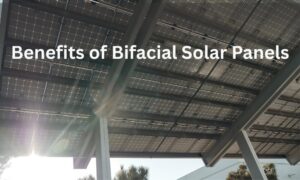As Australia embraces solar energy at an accelerating pace, choosing the right solar panel system becomes a critical decision for households and businesses. Two prominent options, rooftop and ground-mounted solar panels in Australia, often compete for attention, each offering unique advantages. In this guide, we’ll compare rooftop solar vs ground-mounted systems, explore their suitability for various scenarios, and help you determine the best solar placement for your needs.
Are you tired of sky-high electricity bills? Explore the pros and cons of ground vs. roof solar and maximise your energy savings. Switch to solar power with Energy Matters.
Energy Matters is Australia’s best solar power provider via its extensive partnership network of leading solar installers. Contact us for FREE solar quotes today!
The basics of rooftop solar panels: A classic choice
Rooftop solar panels have been a popular choice for many years. They are installed directly on your roof, making them a convenient and aesthetically pleasing option.
What are rooftop solar panels?
Rooftop solar panels are installed directly onto the roofs of homes, commercial buildings, or other structures. These systems harness solar energy using existing spaces, offering a streamlined and cost-effective way to generate renewable energy. Here are some key advantages and limitations of choosing rooftop panels.

| Pros of rooftop solar | Cons of rooftop solar |
| Space efficiency Rooftop solar panels use existing roof space, making them ideal for properties with limited land. This makes them a popular choice for urban homes and commercial buildings. | Roof limitations The roof’s condition, size, and angle may restrict the size or efficiency of the system. Flat or poorly angled roofs may require adjustments, potentially increasing costs. |
| Lower initial cost Since rooftop installations don’t require additional mounting structures, the initial costs are generally lower than ground-mounted setups. | Roof condition Your roof’s condition must suit solar panel installation. Older or damaged roofs may require repairs or reinforcements before installation. |
| Protection from interference Elevated positioning reduces the risk of damage or shading from trees, vehicles, or other obstacles, ensuring consistent energy production. | Shading Trees, chimneys, or nearby buildings can cast shadows on your panels, reducing efficiency. |
| Integration with building design Rooftop panels blend seamlessly into existing architecture and can enhance the property’s aesthetic while increasing its value. |
The basics of ground-mounted solar panels: A powerful option
Ground-mounted solar systems involve installing solar panels on a structure erected on your property, such as a pole or a frame.
What are ground-mounted solar panels?
Ground-mounted solar panels are installed on open land using specialised mounting systems. These systems are ideal for properties with ample outdoor space and offer unparalleled flexibility in design and orientation. They offer unique benefits and challenges, especially in rural or spacious suburban areas.

| Pros of ground-mounted solar panels | Cons of ground-mounted solar panels |
| Optimal sun positioning With ground-mounted systems, you can choose the best solar placement for maximum sun exposure. This option allows you to achieve higher efficiency, as you can optimally angle the panels to capture sunlight. | Space requirements Ground-mounted systems require substantial space, making them less suitable for densely populated areas or small properties. They may also impact landscaping and usable yard space. |
| Easier maintenance and cleaning Ground-level installation makes cleaning and maintaining panels easier, which ensures they function at peak efficiency over the years. | Higher initial installation costs Ground-mounted installations often require additional mounting structures, which can increase costs. The need for trenching and wiring may add to the expense as well. |
| Potential for larger installations Ground-mounted systems often provide room for expansion, making them ideal for larger solar setups. This flexibility can be especially advantageous for commercial properties or farms aiming for greater energy independence. | Higher initial installation costs Ground-mounted installations often require additional mounting structures, which can increase costs. Trenching and wiring may also add to the expense. |
| Increased vulnerability At ground level, these panels are more susceptible to physical damage from animals, debris, and human activity. In some cases, they also require fencing or other protective measures. |
Rooftop solar vs. ground-mounted: Key comparisons
When deciding between rooftop solar vs ground-mounted, consider the following factors:
1. Space availability
- Rooftop solar is ideal for urban areas or properties with limited ground space.
- Ground-mounted systems are better suited for rural or large properties with open land.
2. Installation and costs
- Rooftop systems are typically cheaper to install since they use existing structures.
- Ground-mounted systems incur higher upfront costs but offer better optimisation for energy generation.
3. Energy output
- Ground-mounted systems usually outperform rooftop setups because they can be perfectly oriented and angled.
- Rooftop systems may face limitations based on roof design and shading.
4. Maintenance accessibility
- Ground-mounted panels are easier to access for cleaning and repairs.
- Rooftop systems may require additional equipment or professional services for maintenance.
5. Aesthetic and property impact
- Rooftop solar enhances a property’s appearance by utilising existing structures.
- Ground-mounted systems may occupy valuable space or affect landscaping aesthetics.
Ground vs roof solar: Making the right choice
The best choice for you will depend on various factors, including your budget, property size, roof condition, and energy needs. Here are some questions to consider:
- How much space is available on your roof?
- What is the condition of your roof?
- Are there any obstructions that could shade your solar panels?
- How much energy do you need to generate?
- What is your budget for the initial investment?
Which is the best solar placement for you?
Whether you choose rooftop or ground-mounted solar, placing your solar panels is critical to maximising energy production. Here are some factors to consider:
- Sun exposure: Identify areas with minimal shading from trees, buildings, or other structures.
- Roof orientation: North-facing roofs are ideal for optimal solar exposure in Australia. Check our page for which direction solar panels should face in Australia.
- Roof pitch: A steeper roof angle can improve solar panel performance, especially during winter.
- Panel tilt: The optimal tilt angle for solar panels varies depending on your location and the time of year. Consulting with a solar energy expert can help you determine the best angle for your needs.
- Local regulations: Check with your local council to understand any zoning restrictions or permit requirements.
- Budget: Assess your budget to determine each option’s upfront costs and long-term savings.
- Energy needs: Calculate your annual energy consumption to determine the solar system size you need.
Choosing between rooftop and ground-mounted solar panels ultimately depends on your unique circumstances. Here’s a breakdown of when to choose each option:
Opt for rooftop solar panels if:
- Your roof is in good condition, with sufficient space and proper orientation.
- You have limited ground space or prefer to maintain your outdoor areas.
- You’re looking for a cost-effective solution for smaller energy requirements.
Opt for ground-mounted solar panels if:
- You have ample open land that receives uninterrupted sunlight.
- You want a larger, scalable system for higher energy demands.
- If you prefer easy access for maintenance or plan to integrate solar tracking technology.
Ready to power your future?
When comparing rooftop solar vs ground-mounted solar panels, the decision hinges on space availability, energy needs, budget, and personal preferences. Rooftop systems offer cost-effective, space-saving solutions, while ground-mounted setups deliver superior energy efficiency and scalability for larger projects.
Whether you’re considering rooftop or ground-mounted solar, Energy Matters is here to help. Our solar expert team helps Australian home and business owners receive personalised solar quotes through our large network of high-quality solar installers. Take the first step towards energy independence. Contact Energy Matters today!









